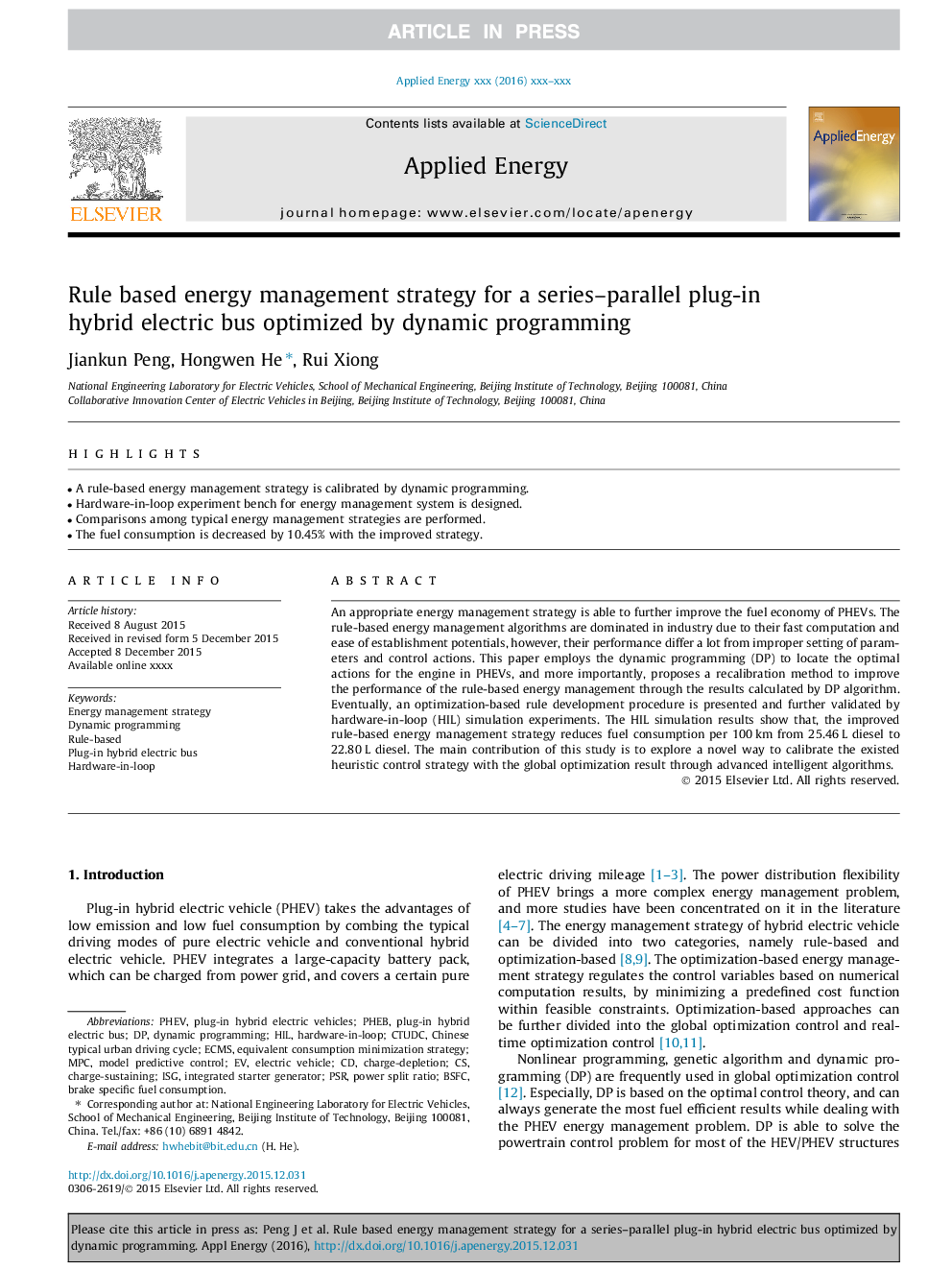| Article ID | Journal | Published Year | Pages | File Type |
|---|---|---|---|---|
| 4917096 | Applied Energy | 2017 | 11 Pages |
Abstract
An appropriate energy management strategy is able to further improve the fuel economy of PHEVs. The rule-based energy management algorithms are dominated in industry due to their fast computation and ease of establishment potentials, however, their performance differ a lot from improper setting of parameters and control actions. This paper employs the dynamic programming (DP) to locate the optimal actions for the engine in PHEVs, and more importantly, proposes a recalibration method to improve the performance of the rule-based energy management through the results calculated by DP algorithm. Eventually, an optimization-based rule development procedure is presented and further validated by hardware-in-loop (HIL) simulation experiments. The HIL simulation results show that, the improved rule-based energy management strategy reduces fuel consumption per 100Â km from 25.46Â L diesel to 22.80Â L diesel. The main contribution of this study is to explore a novel way to calibrate the existed heuristic control strategy with the global optimization result through advanced intelligent algorithms.
Keywords
Related Topics
Physical Sciences and Engineering
Energy
Energy Engineering and Power Technology
Authors
Jiankun Peng, Hongwen He, Rui Xiong,
